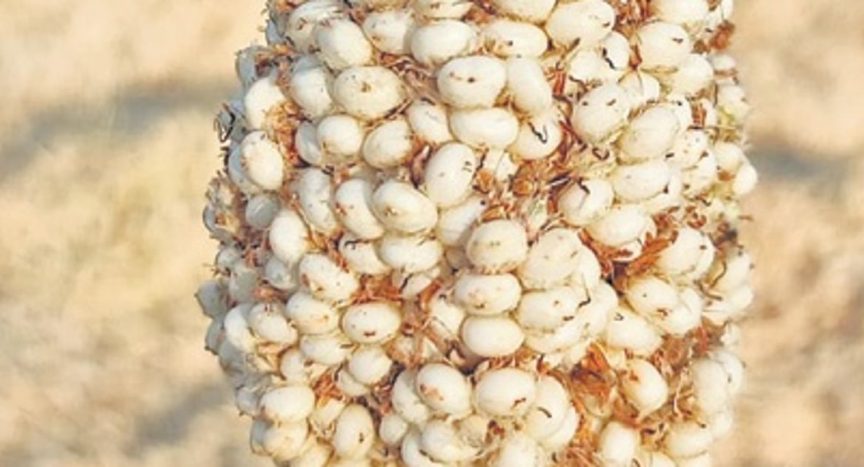
oodness Farm’s 150-odd products include organic groundnut oil, castor oil, fruits, sprout-activated maize, and others.
CHENNAI : Teeming with earthworms, fungi, and invisible microorganisms, the soil consists of a community of lifeforms, roots of magic beneath us. As philosopher Aldo Leopold penned, “Land, then, is not merely soil; it is a fountain of energy flowing through a circuit of soils, plants and animals”. After all, this grainy earth knows best, it yields fresh watermelons and nungu in summers, hearty millet, and ragi for kuuzh during Aadi, or keerai during monsoons. In today’s world filled with buzzwords like sustainability and healthy eating, we need not look any further than the crops the seasons and soil bring to us.
Established in 2018, city-based Goodness Farm believes that seasonal cultivation creates a sustainable lifestyle and a sustainable farming pattern. A strong advocate of seasonal produce and value-added products, founder Maria Jenita has tied up with 50 farmers across districts including Tiruvannamalai, Erode, Mettur, and Thanjavur, and has set up a portal to ensure ethical sales of organic products.
“There are time-tested recipes made from seasonal grains. For instance, horsegram generates a lot of heat and we need these dishes during monsoon and winter, which is when these grains are harvested. During Aadi, we have a high rise of chicken pox and mumps, and the temperature is high in our body, and it is cooled by seasonal produce like ragi and millets,” explains the food technologist from Anna University.
All organic and sourced from indigenous seeds, Goodness Farm’s 150-odd products include organic groundnut oil, castor oil, fruits, sprout-activated maize, and others. Seeraga Samba, Parboiled Ponni rice, Karuppu Kavuni, Kodo millet — the options are endless.
Goodness Farm’s work with farmers across Tamil Nadu began during the pandemic. Amid the lockdown, Maria explains she heard stories from a friend about farmers struggling to sell organic produce like groundnut and coconut oil in Cheyyar. “Their produce, as it was organic, was getting pest-infested quickly.
Organic cultivation cannot be chemically fumigated, so we had a patented technology of making foolproof, ceramic, wood-in-built cold-pressed oil extraction machine at a lab scale, for patent process, with photo, configuration and nutritional value and profile.” Unlike a traditional machine, this one avoids chemical solvents while preserving natural nutritional value and ensures a longer shelf-life.
Soon, this makeshift machine moved out from the Centre for Entrepreneurship Development at the university, under the watchful gaze of Maria and her students, to warehouses in Cheyyar in May 2021. As Maria took to social media and online portals with the oils, sales also took off. With research and expansion in mind, the technologist also “conducted workshops in 2022 and 2023 on intercropping, a mode of organic farming. As land gets depleted of all its nutrients, it attracts more pests and the plants don’t have the capacity to overcome the pests. Intercropping is an excellent method to avoid pests.”
Maria emphasises the importance of ethical sales, adding that “every month, farmers cultivate crops and once they harvest, we set this up so they get a steady monthly income. They receive 30% of the commission.” While the yield is low compared to commercial agriculture, this ensures farmers are not burdened,” she adds.
Meanwhile, Goodness Farm continued to research how to enhance the nutritional value of grains when it is processed. “Millets seem to have disappeared and were forgotten in our recent past, like our parent’s generation, because it has a lot of anti-nutrients. Millets deplete the nutrition in our body when it isn’t processed correctly. We found that sprouting and sprout-activating seems to be the best choice as all grains have an anti-nutrient compound,” she explains. Tech meets traditional farming knowledge as Goodness Farm also uses other methods like spray drying to preserve organic food.
Indigenous seeds are crucial in this project as they maintain soil nutrition, and grains are rich in nutrition. “Hybrid commercial seeds entered the market because the other seeds lost their capacity to withstand insect resistance. But with indigenous seeds and intercropping, the soil gets the much nourishment it needs,” she signs off, determined to continue spreading the message of seasonal crops.
Follow Goodness Farm @goodnessfarm_mj on Instagram





